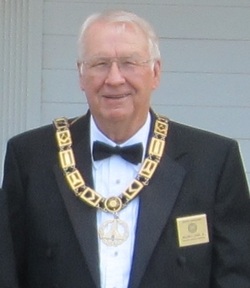
Today, with Masonic membership down to about a million from four million in the 1950s, the Masons can't afford the upkeep of all the antiquated Buildings and Temples that serve as meeting places for their Fraternity.
These Buildings, which are typically located in the downtown areas of large cities, usually have limited parking and with the absence of working elevators, making them difficult for aging members to use.
So, what is happening to many old Temples that are located in these cities? Masons are selling them and relocating to smaller, more modem structures in the suburbs where the upkeep is more nominal.
The majority of these structures were built from the late 1870s to the early 1930s. During this period of time, Freemasonry was a major force in American Society. Labor and materials were cheap and members built large and elaborate Temples and Lodges across the country, often with imposing facades and intricate carvings.
Since Masonry is a central component of the origin of the Freemasons, these structures were very well built, however converting a Masonic Temple with a large meeting hall to residences isn't always easy for the developer, but they knew they had a solid building with which to begin their conversion.
Drawing cards for tenants of these condos were the wide-open spaces, forty foot high ceilings, spiral staircases and the exquisite stone-carved symbols, all worked into the transition from Masonic Temple to luxury living spaces.
Many of these condos are rented, most even before the conversion is completed and prices can range from $900 to $2000 per month.
However, many are for sale, ranging in size from 700 square feet to 1800 square feet in size. A three bedroom, two bath unit in New York City recently sold for $2.7 million.
Even though these old Temples are not now being used for their original purpose, their solid foundation, well-built structures and intricate designs continue to benefit and influence another generation with our Fraternity's purposes and values.
Sincerely and fraternally,
William R. Logan, SGW
Chairman, Masonic Education Committee
 RSS Feed
RSS Feed




